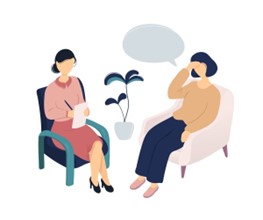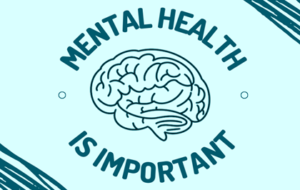If you have ever gone to a counsellor, have you noticed any special features in the way they interact? There are some generic counselling skills that help develop and maintain the Counsellor – Client relationship to its maximum effectiveness and many institutions and centres offer it as a basic counselling skills course. Well, before we turn back to the specific skills that are a part of counselling, let us first define what exactly counselling is.
What is Counselling?
In it, the client-counsellor relationship is intended at facilitating the latter in resolving the various problems for which the former was sought after. Counselling is nothing like the common misconceptions that it only involves talking or giving opinions and recommendations. There is no such thing as just providing advice, or merely addressing a problem. It involves assisting a person in dealing with his or her problems by firstly comprehending the problem at hand and then helping the person manage, alter, and deal with the problem at hand.
Counselling vs. Psychotherapy
Is counselling the same as psychotherapy? No. Even though both deal with matters concerning people’s mental health and have common elements, they are different.
Then, what is the difference between counselling and psychotherapy?
- One of the most obvious differences is that counselling is relatively short-term compared to psychotherapy which tends to last longer periods of time.
- Counselling focuses more on the behaviour and action aspect of the individual while psychotherapy’s objectives emphasis on emotions and thoughts.
- It can be said that psychotherapy is a more in-depth process than counselling which mostly attends to current surface level problems.
- The goal of counselling can be considered to be resolution of issues an individual is currently facing in their life whereas psychotherapy is majorly intended at reducing emotional distress, helping them adapt better to their situations by overcoming hindering psychological issues and overall growth.
Both counselling and psychotherapy are effective methods to deal with problems in life, but the decision about better choice depends on the person and their needs. Psychotherapy might be necessary if you are dealing with a mental health condition. A stressful situation? Counselling might be just what you need.
Basic Counselling Skills
When you, as a counsellor, are dealing with a client with their concerns, there are some basic skills that are necessary to maintain a healthy and effective counsellor-client communication that can result in best outcomes. Here are some skills that are essential in practising counselling:
○ Active Listening: This is one of the key skills with prime importance in counselling as it is crucial that the counsellor has the capacity to listen actively to the client in a way that makes them feel heard. If the clients feel that they are being taken seriously, that would give them the confidence and security to be more honest and forthcoming. It will lead to effective communication. Any basic counselling skills course would emphasise the importance of being a good, active listening in the field of counselling.
○ Rapport Building: For creating a comfortable space for counselling that ensures maximum communication and best outcomes, it is necessary to establish trust and confidence in the client about the counsellor. This makes the counselling a safe and secure place for the client so that they can admit and acknowledge their problems honestly.
○ Empathy: Anyone can be sympathetic while hearing others’ problems and hardships. A counsellor has to be more than that. They should be empathetic, that is, able to understand the issues from the client’s perspective. Sometimes also referred to as ‘being in someone else’s shoes’, empathy requires the counsellor to avoid judgements, assumptions, and be aware of the issue thoroughly so that they can provide appropriate aid.
○ Nonverbal Communication: Being aware of and understanding the nonverbal cues and body language of the client is important as it gives more insight into their general character, current state, personality, etc. Counsellor also should have subtle and supporting nonverbal acts like maintaining proper eye contact, leaning forward in attention, nodding appropriately and so on to encourage the client.
○ Reflection: Reflection involves the counsellor paraphrasing or summarising the words, experiences, and emotions conveyed by the client. This helps in deeper understanding and also invoking self reflection in the client. There are many programs with basic counselling skills courses that provide information on how to effectively execute counselling techniques like reflection.
○ Asking Questions: The counsellor should be well-versed in asking the right questions at the right time to get relevant information readily from the client that can help provide useful data and make the interaction more effective.
In addition to all these, there are many other qualities and features mentioned in various basic counselling skills course such as unconditional positive regard, confidentiality, respect and acceptance, integrity, etc.
At the heart of it all, be humane.
Why CoachForMind?
- Experienced Psychologists: We are a team of licensed RCI-registered clinical psychologists. Our team is well-experienced in various forms of therapy such as CBT, DBT, Narrative Therapy, and other therapeutic techniques.
- Personalized Approach: We are dedicated to treating our clients in the best-suited way, carefully curated as per the client’s needs, inculcating core features of basic counselling skills and adhering to one-on-one, client-centered therapy.
- Scientific Techniques: Our treatment plans and therapeutic methods are based on highly researched scientific findings such as CBT, DBT, and Narrative Therapy among many other therapeutic techniques used in Gaming Addiction Treatment.
- Quality service: We at CoachForMind ensure quality services in our treatment regime and therapeutic approaches. Our clients hold most value to us, so we ground our techniques in empathy while maintaining professionalism.
For more information, please visit our website or contact us directly at coachformind@gmail.com





